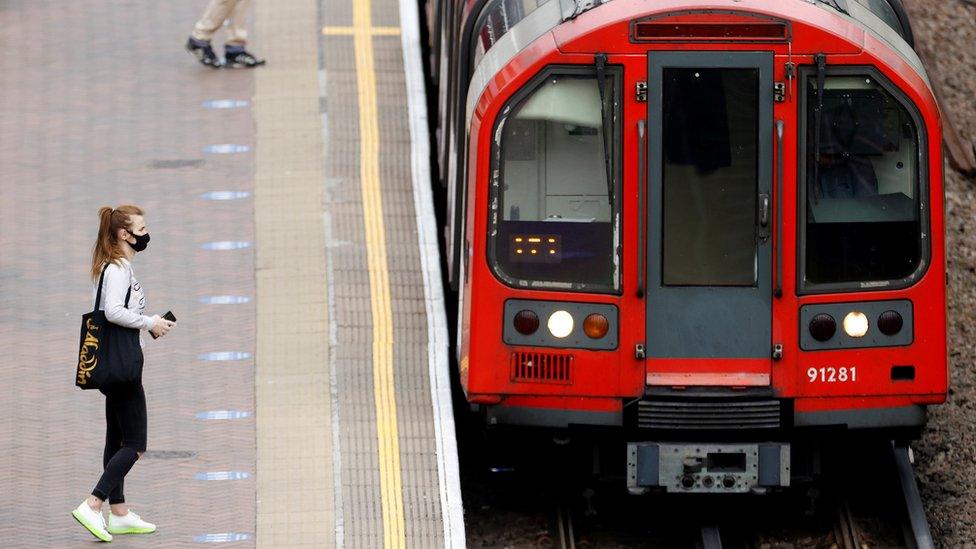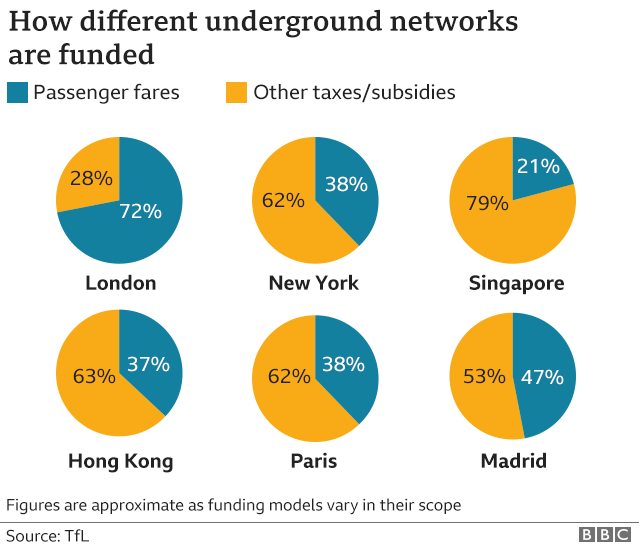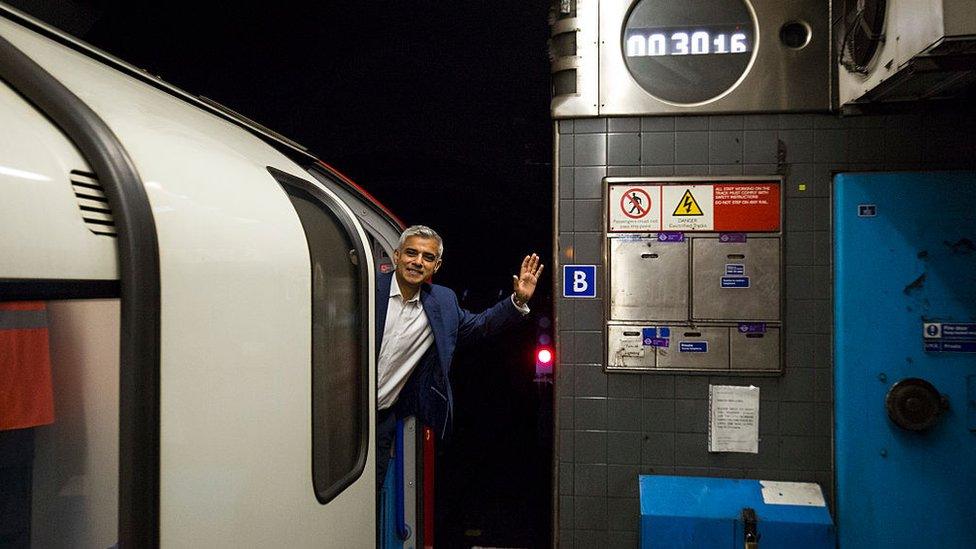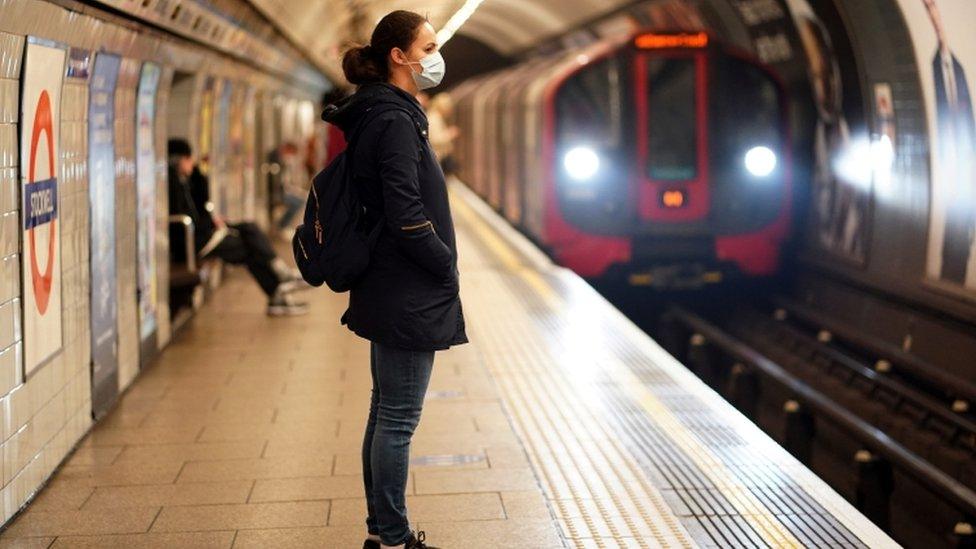Covid-19: London public transport bailout extended by four months
- Published

The government has paid nearly £5bn in bailouts to keep TfL services running during the coronavirus pandemic
Funding to keep the public transport system running in London has been extended until June.
The government has agreed to continue the bailout for Transport for London (TfL) while they work out a deal to secure long-term funding.
TfL's income, mainly from fares, has plummeted due to the Covid-19 pandemic.
The Department for Transport (DfT) said the latest deal was worth about £200m, taking the total support given by the government close to £5bn.
A bailout was first agreed with the government in May 2020 and has been extended by differing lengths of time ever since.
This fourth funding settlement will expire on 24 June.
Mayor of London Sadiq Khan said he was relieved the latest funding deal had been secured, but added that TfL needed more money in the long term.
He said: "This agreement makes reference to future capital investment for TfL. But it's essential that this quickly turns into a concrete commitment from the government.
"The only way we will be able to avoid significant and damaging cuts to Tube and bus services is if the government steps up and provides the longer-term capital funding TfL urgently needs."

The latest extension has also been criticised by a transport union which says the "government fails to grasp the importance of transport to our economy".
Manuel Cortes, general secretary of the Transport Salaried Staffs' Association, said: "The funding arrangement shows how the government's micromanagement of TfL is strangling the life out of it.
"TfL can't make plans and is in a position of stagnation and decline under the government's oppressive approach."
Transport Secretary Grant Shapps said that the support packages "must be fair to all taxpayers".
He added: "The settlement agreed today provides enough to cover lost revenue from the pandemic while the mayor follows through on his promises to keep TfL on the path to financial sustainability by 2023."

Analysis
By BBC London transport correspondent Tom Edwards
TfL is gladly taking the deal, but it's holding its nose a bit as there are some big conditions still attached.
There is a definite change in tone from the government. It realises a long-term deal for infrastructure and repairs and renewals is needed for "stability and forward planning".
But the mayor will still have to raise between £500m and £1bn and make £400m in savings.
We could see a daily charge for drivers in all parts of London, a raise in council tax, or Heathrow being put into zone one.
Or perhaps an extension of the ULEZ or the phasing out of free travel for 60-year-olds. Could the rail travelcard be scrapped?
The phrase that sticks out from the government is that the mayor should continue to move the TfL pension into a "financially sustainable position".
We are already facing two huge RMT Tube strikes next week on that issue - the unions remain totally against any changes to pensions and so there could be more strikes ahead.
So this isn't over.

Follow BBC London on Facebook, external, Twitter , externaland Instagram, external. Send your story ideas to hellobbclondon@bbc.co.uk, external
- Published17 December 2021

- Published21 February 2022

- Published8 December 2021

- Published7 December 2021

- Published30 November 2021

- Published14 May 2020
